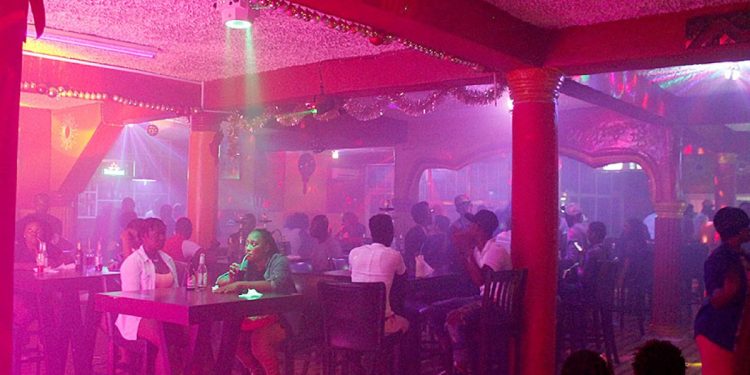By Hassan Osman Kargbo
Freetown, the vibrant capital of Sierra Leone, is a city known for its rich culture, musical heritage, and a nightlife that attracts both locals and tourists. From bustling bars on the beach to high-energy nightclubs pulsating with local tunes and international hits with the attendant colorful lights, Freetown’s nightlife offers an array of experiences. However, one pressing issue that has increasingly come to the forefront is the significant increase in the prices of commodities, particularly in nightclubs, especially at night. Some people have been seriously raising concerns why prices are increased at night clubs.
The phenomenon of price hikes during evening hours is not unique to ‘Freetonians;’ However, the impact of such price hikes is particularly evident in Freetown where spending power is a concern. The disparity in prices during the day and at night in nightclubs is alarming; patrons often find that basic commodities—beverages, food, and even entry fees—skyrocket once the sun sets. For example, a drink that costs merely NLe10 during the day would be sold for NLe 20 or more at night. Such price disparities raise eyebrows, sometimes drawing criticisms from both regulars and casual visitors.
The reasons behind such price hikes are many. Firstly, nightclubs operate on a different business model compared to daytime establishments. With a focus on creating an exclusive and exciting environment, many clubs sell at prices higher than normal, maybe for the ambiance and entertainment. Moreover, the costs associated with late-night operations—including higher staff wages, security, and overhead utilities—often force owners to pass such expenses to patrons.
Furthermore, the nightlife scene in Freetown is characterized by a growing demand for certain commodities, particularly premium brand alcoholic beverages. The rise of disposable income among certain segments of the population has created a subset of patrons willing to pay a premium for luxury items. Nightclub owners and operators, recognizing such a trend, adjust pricing accordingly. But such high prices or charges create a divide as average patrons may feel alienated about the atmosphere of exclusivity some can’t afford to patronize in.
The impact of rising prices is felt acutely by some nightclub patrons, especially the younger generation who form the backbone of Freetown’s nightlife. For many, enjoying a night out is a cherished social experience; but high price hikes and charges can make even simple night-outs prohibitively expensive, such situations fostering feelings of frustration and exclusion, leading to potential shifts in consumer behavior. Some may choose to limit their nightlife activities or seek alternative entertainment, such as smaller local bars or informal gatherings.
On the flip side, some argue that the price increases during nighttime reflect the realities of supply and demand. Nightclub owners and operators, aiming to maximize profit, may feel justified in charging accordingly.
As Freetown continues to attract international visitors and investors, there is the potential for a shift in the perception of value in the nightlife sector. Yet, for nightclubs to thrive sustainably, they must strike a balance between profitability and accessibility.
Ultimately, the escalation of prices for commodities in Freetown’s nightlife reflects broader economic challenges and trends. While business owners seek to maintain profit, they must also consider the impact on their clientele. A nightclub that becomes increasingly exclusive may alienate the very community it was built to serve. Balancing the need for profit with the desire to create an inclusive and vibrant nightlife will be crucial for Freetown’s nightlife future.
As patrons continue to navigate price differences, open dialogues between consumers and business owners is essential for establishing a sustainable nightlife equilibrium that benefits all.











